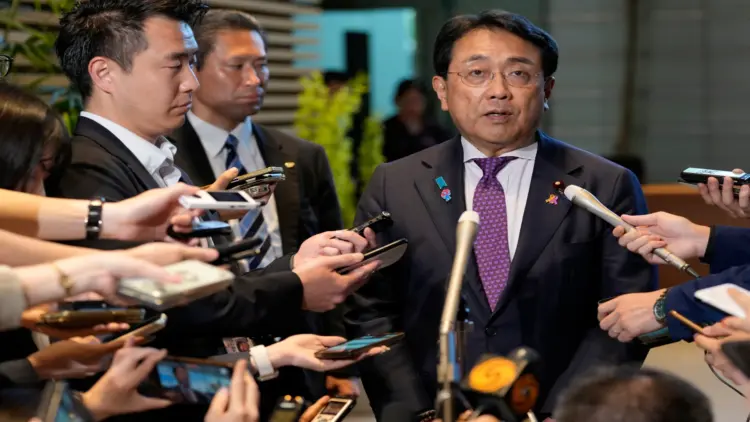Japan’s diplomatic mission to Washington represents a critical juncture in U.S.-Japan trade relations, as Tokyo seeks to secure the implementation of hard-fought tariff concessions that could save Japanese automakers billions in export costs while testing the Trump administration’s commitment to bilateral agreements. Ryosei Akazawa’s urgent trip underscores the high stakes involved in translating negotiated trade deals into concrete executive action, particularly given the complex web of overlapping tariffs that threaten to undermine the economic benefits both nations expected from their July agreement. This diplomatic push comes at a pivotal moment when Japan’s automotive industry faces unprecedented pressure from American trade policies, making the successful implementation of agreed tariff reductions essential for maintaining the competitiveness of Japanese car exports in the crucial U.S. market.
Diplomatic Mission and Tariff Implementation
Japan’s top tariff negotiator Ryosei Akazawa said he would leave for Washington on Tuesday, seeking to press for President Donald Trump’s signing of an executive order that would bring an agreed cut to tariffs on Japanese auto imports into effect.
The U.S. last month agreed in a trade deal to lower existing tariffs on Japanese car imports to 15% from levies totalling 27.5% previously, but a timeframe for the change to go into effect was not announced.
Duties on other Japanese goods will be cut to 15% from 25% from Thursday.
“We will push the United States to make sure that an executive order be signed on the agreed tariff on automobiles and automotive components as soon as possible,” Akazawa told parliament.
Tariff Stacking Concerns
Referring to the problem of “stacking” where goods can be affected by multiple tariffs, Akazawa also said Japan wants to make sure goods that are already levied at more than 15% would be exempt from the additional 15% rate.
A table attached to Trump’s July 31 executive order that addressed tariff rates for many trading partners showed a “no stacking” condition applies to the European Union, while no such clarification was given for Japan.
Akazawa told parliament Japan has received reassurances from the U.S. that it would be treated the same way as the European Union regarding the condition.
The tariff stacking issue represents a potentially devastating technical oversight that could transform Japan’s negotiated trade victory into a pyrrhic achievement, as the absence of explicit “no stacking” language in Trump’s executive order threatens to subject Japanese goods to compounded tariff rates that would exceed even the original punitive levels. Japan’s insistence on receiving the same treatment as the European Union highlights the critical importance of precise legal language in international trade agreements, where administrative errors or omissions can cost billions in additional duties and undermine the fundamental economics of export relationships.
Investment Package and Strategic Cooperation
He stressed that there was no misunderstanding with the United States about Japan’s $550 billion investment package agreed in the tariff deal.
“We have repeatedly explained to the U.S. that Japan will invest up to $550 billion in the form of equity, loans and guarantees” through state-owned financial institutions to jointly build supply chains critical for national security, Akazawa said. “This is what we believe is our consensus.”
Akazawa has said equity investment would account for just about 1-2% of the $550 billion.
Japan’s high-stakes diplomatic mission to Washington epitomizes the complex reality of modern trade negotiations, where securing initial agreements represents only the first step in a protracted process of implementation that requires sustained political pressure and technical precision to transform promises into economic reality. The success or failure of Akazawa’s efforts will determine whether Japan’s automotive industry can maintain its competitive position in the American market or face continued punitive tariffs that threaten decades of carefully built trade relationships and supply chain integration.
GCN.com/Reuters.


